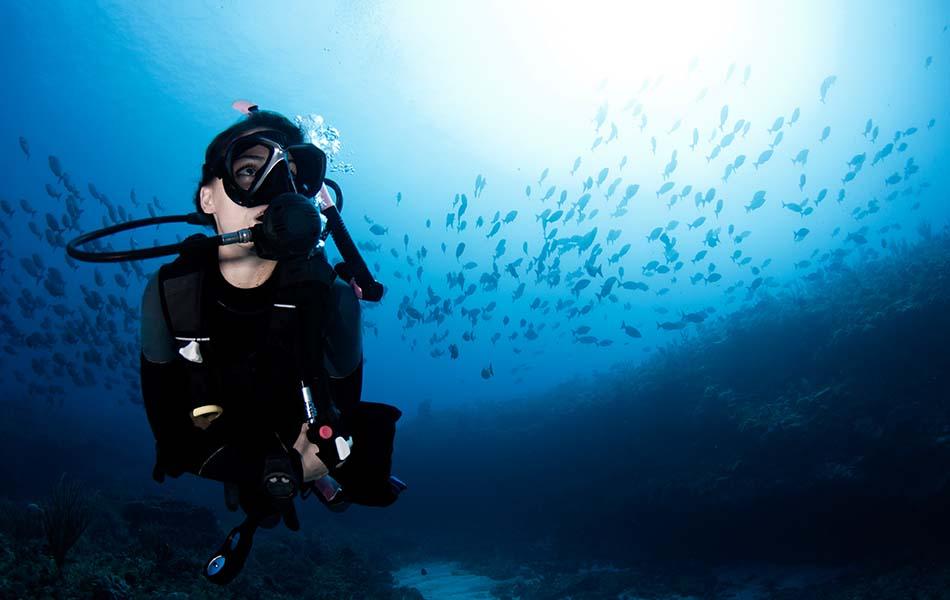
As we approach what would normally be peak UK diving season, we would all do well to reflect on some simple precautions to ensure our own and our colleagues’ safety.
The easing of restrictions is allowing many to return to diving activity. In addition, the continuing limitations on overseas travel mean many are looking to increased diving in the UK and longer trips to different and newer locations.
The BSAC Annual Incident Report has previously shown that more diving taking place is reflected in the number of incidents that occur – this is illustrated in the maps shown in the 2018 and 2019 reports where there are more incidents at popular diving destinations.
Additionally, more experienced divers who dive more frequently are at a higher risk of encountering unforeseen circumstances due to the higher volume of dives meaning a higher degree of exposure, rather than any lack of ability, skills or experience. Therefore, all divers should remain vigilant and prepared for changing situations whilst diving, both for themselves and their buddy. Spotting a minor issue in a buddy check for instance (e.g. inflation hoses not connected, computer low on battery, loose equipment etc.) can prevent inadvertent errors before even entering the water that could have very serious consequences if not resolved.
Take the time to prepare
Early indications from 2021 incident reports show that incidents have been minor and easily resolved due to many divers taking the time to prepare for a return to activity by practising in a controlled environment. By visiting managed inland sites to check out kit, ease back into the water, or get acquainted with UK conditions and refresh skills, divers have been able to stabilise issues before committing to more challenging dives.
Those who have yet to return to the water are advised to follow the preparation guidance already available.
Preparation for return to diving guidance
Raising awareness of IPO
BSAC has been raising awareness of the serious implications associated with divers suffering from Immersion Pulmonary Oedema (IPO) and we continue to gather evidence of instances of this occurring in divers.
There have been a number of incidences in recent times where divers and/or their buddies have recognised the signs and were able to get out of the water safely. We would encourage all divers to familiarise themselves with the signs and symptoms of IPO and remain alert to them in both yourself and your buddy whilst diving and if in doubt terminate the dive safely.
Diver guidance for IPOWatch IPO webinar
Helping out the wider watersports community
As a result of the Covid-19 outbreak, there have been many knock-on implications including the increased use of water-based activities in the UK. Restrictions on overseas travel, closures of leisure facilities, especially swimming pools, etc. all led to a significant increase in people making use of UK beaches, lakes, rivers and other locations.
Because of such increases, there has been a consequent increase in water-related incidents including deaths in the UK, often from people who had no intention to enter the water. Organisations including the National Water Safety Forum (NWSF), which includes BSAC, MCA, RoSPA, RNLI, RLSS and Swim England, are actively reviewing the statistics and developing awareness programs and will be participating in a round table meeting with a government minister on the subject on Tuesday 7 July.
As divers, we can play some part in aiding the safety of others by remaining attentive to any potential signs of distress or difficulty from others on or near water and provide assistance where necessary.
Stay safe when returning to diving and snorkelling
The key messages already promoted remain valid for everyone and we would remind all divers to ensure:
- You and your equipment are fit and ready
- Practice/refresh your skills in controlled conditions
- Start slowly and build up progressively
Preparation for return to diving guidance
Dive safe – snorkel safe
Jim Watson
BSAC Safety and Development Manager






